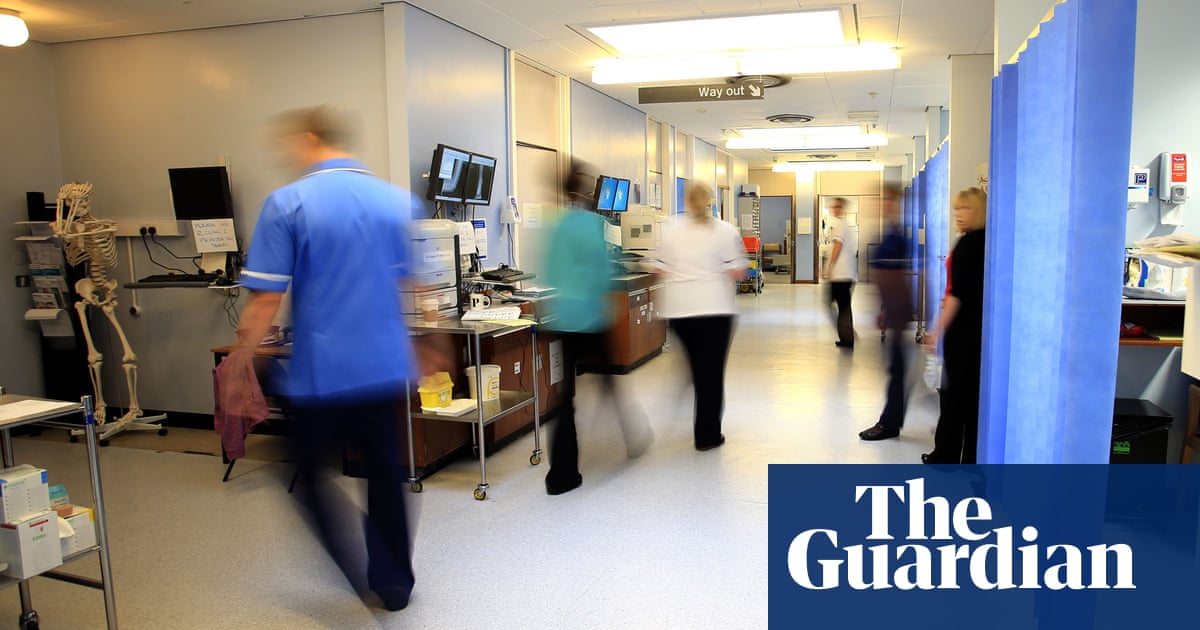
Patients in England will be offered 500,000 more appointments a year via seven-day health hubs under plans to tackle lengthy waiting times, as ministers warned the NHS could collapse like Woolworths without major reform.
Millions of people will be able to access checks, tests and scans closer to home as the health service expands the number of community diagnostic centres (CDCs) opening 12 hours a day, seven days a week.
Seventeen new and expanded surgical centres across the country will launch by June to get more patients treated faster as part of a series of proposals to be outlined on Monday by Keir Starmer.
Hospitals and GP surgeries will also be directed to increase the use of technology such as remote monitoring and artificial intelligence tools to prevent unnecessary appointments and admissions. The NHS app will be overhauled to give patients more choice.
“NHS backlogs have ballooned in recent years, leaving millions of patients languishing on waiting lists, often in pain or fear,” the prime minister said. “Lives on hold. Potential unfulfilled.
“This elective reform plan will deliver on our promise to end the backlogs. Millions more appointments. Greater choice and convenience for patients. Staff once again able to give the standard of care they desperately want to.”
Starmer will confirm details of the plan, first revealed by the Guardian on Friday, after publicly pledging last year that, by July 2029, 92% of patients would be seen within 18 weeks.
Under the shake-up, patients will be able to get direct referrals for tests and scans for a range of ear, nose and throat, gynaecological, urological, bowel and lung conditions – without seeing a consultant first.
Thousands of patients will be offered a “same-day service”, with follow-up consultations on the same day as their scans or tests, enabling more people to start treatment or get the all-clear quicker.
A big expansion of ringfenced elective capacity in the NHS will also mean routine care such as hip and knee replacement surgery will be protected from winter pressures and future pandemics.
On Sunday, Wes Streeting warned that the NHS could “go the way of Woolies” unless it was brought “into the 21st century” by reform.
The health secretary said the elective reform plan was designed to ensure the health service did not collapse like high street retail chain Woolworths did after the 2008 financial crisis.
Streeting said the government was placing a “heavy emphasis on reform, not just investment” because the NHS faced an “existential” challenge.
Health experts welcomed the drive to cut NHS waiting lists, but warned digital innovations must not “create new barriers” or “come at the expense of excluding those without a smartphone”.
Saffron Cordery, the interim chief executive of NHS Providers, said health leaders were keen to work with ministers to tackle the care backlog caused by years of underinvestment and “severe staff shortages”, but warned that NHS trusts face “huge operational and financial challenges every day”.
Doctors told the Guardian on Friday they were not convinced Starmer’s plans would succeed because the NHS workforce crisis meant there were insufficient staff to reduce waiting lists quickly, and a failure to simultaneously rescue NHS emergency care would derail efforts to improve routine care.
Source: theguardian.com


















